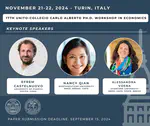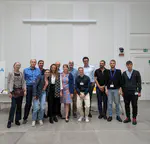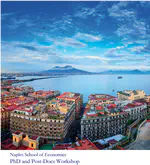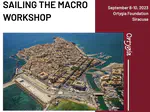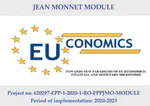Matteo Bondesan
Research Fellow and PhD Candidate; Doctoral Fellow
University of Turin and Collegio Carlo Alberto
I am a Research Fellow and Ph.D. Candidate at the University of Turin (ESOMAS Department) and a Doctoral Fellow at the Collegio Carlo Alberto. My research interests include climate economics, quantitative macroeconomics and macroeconometrics to study the transmission mechanism of monetary and fiscal policy with non-anchored expectations and heterogeneous agents using HANK-, DSGE- and VAR-type modelling. I am grateful to my advisors, Fabio-Cesare Bagliano and Luca Gambetti, for close cooperation. Recently, I studied the effect of introducing bounded rationality, in the form of adaptive learning, within a one-asset HANK framework in continuous time to shed light on how individual and aggregate behaviors change moving beyond FIRE.
My current empirical research agenda builds around the following question: do households in the Euro area behave according to a non-anchored expectations system in their consumption/investment optimal decisions?
On the policy side, I have collaborated with international organizations (e.g. IOSCO, ECB, and EIB) to study the policy implications of regulatory changes.
Please, have a look at my curriculum vitae or résumé.
- Macroeconomics
- Climate Economics
- Monetary and Fiscal Policy
- Macroeconometrics
- Finance/Asset Pricing
- Oversight of Financial Market Infrastructures
- Machine Learning
-
Ph.D. in Economics, 2026 (expected)
University of Turin and Collegio Carlo Alberto
-
M.A. in Econometrics and Quantitative Economics, 2021
Emory University
-
Ph.D. in Economics (all but dissertation), 2018 - 2021
Emory University
-
M.A. in Economics, 2015
Collegio Carlo Alberto
-
M.Sc. in Economics, 2014
University of Turin
-
B.Sc. in Economics, 2012
University of Turin
Skills
Experience
IOSCO is the global standard setter for securities markets regulation.
Responsibilities include:
- Support the joint work of the IOSCO General Secretariat with the BIS' Committee on Payments and Market Infrastructures (CPMI) on Financial Market Infrastructures (FMIs).
- Engage in research and analysis of international IOSCO projects.
- Provide overarching assistance to the work of the General Secretariat.
Department of Economics, Social Studies, Applied Mathematics and Statistics:
- PhD dissertation.
- My research investigates the transmission mechanism of monetary and fiscal policy with unanchored expectations and heterogeneous agents using HANK-, DSGE- and VAR-type modelling.
- PhD program: https://www.phdpareto.carloalberto.org.
Responsibilities include:
- Analysing;
- Modelling;
- Overseeing.
- Fun-fact: Winner of the ECB Schuman Cup (football)
During such a timespan, I started off as a trainee in the Directorate General Market Operations before being promoted to become an analyst in the Directorate General Market Infrastructures and Payments (DGMIP). After leaving the ECB to pursue my doctoral studies at Emory University, I returned to work as an Oversight Specialist in the Oversight division in DGMIP.
Department of Economics:
- Ph.D studies (All but dissertation).
- Instructor of Intermediate Macroeconomics (Undergraduate).
- Co-instructor of Quantitative Methods for Economics I and II (Math camp, Graduate).
- Various Teaching and Research Assistantships (see CV for details).
- Full coursework.
- Successfully passed the three required core exams: Microeconomics, Macroeconomics and Probability & Statistics.
- Fun-fact: 2019 Battle of the fields (soccer)
Current Research, Working Papers and Ongoing Projects
International Conferences and Policy Talks
Op-Eds
Teaching, Lecture notes, TAs and RAs
Recent Posts
Contact
- matteo.bondesan@carloalberto.org
- Piazza Arbarello 8, Torino (TO), 10122
- Enter CCA Building and take the stairs to Office 305 on Floor 3
-
Wednesday 10:30 to 12:00
Thursday 10:30 to 12:00 - Book an appointment
- Matteo’s profile
- Zoom Me







